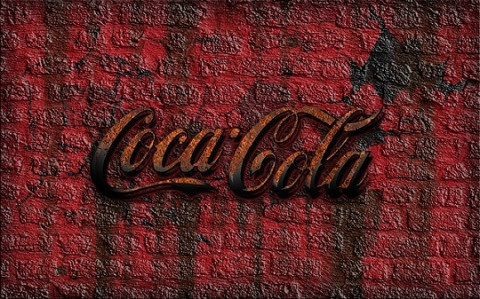
10 min
0
10.04.2022

From its first year of operation, EuroDisney overlooked several key elements that consequently hampered its financial growth and performance. This research study tackles the issue of the "Not So Wonderful World" of Euro Disney, and other Disney are subsidiaries within the Walt Disney Company. By the end of this analysis, we should have a clear knowledge of what business decisions led to EuroDisney's less-than-ideal reality, as well as a better grasp of the parent or guardian company's mistakes.
But before we get started with the case analysis, it is important to note that this is just a synopsis of the topic to help guide your homework with your research and conclusion. If in case the topic may be too complex, you can contact our essay writers.
📜 A Brief Look at History
The Walt Disney Company is the parent company of Euro Disney and other Disney companies around the world, making it a global family entertainment network with four business divisions: media systems, parks and resorts, studio room entertainment, and consumer products.
In 1955, Walt Disney established an amusement park in the middle of Southern California's orange orchards in Orlando, Florida. This forever changed how Americans and the rest of the world, be it China, France, Japan, or the United States, perceive entertainment. No longer was it the realm of carnival hucksters but a place of wonder and joy.
Come April 1992, The Walt Disney Company and Affiliated Companies unveiled a new European tourism attraction along the river Marne in the east of Paris: the largest and most lavish Disney theme park - Euro Disney, currently known as Disneyland Paris.
Nonetheless, creating a large theme park in Paris resulted in Euro Disney's set-up for disaster due to management errors of being unable to contemplate certain consequences and put together an effective marketing strategy. Furthermore, they did not have the same in-depth understanding of the European market, demographics, and local culture compared to their American counterparts.
🚩 Factors That Contributed to Poor Performance
Many causes led to Euro Disney's poor performance during the first year of operation, and many of them might have been avoided if the right elements had been considered earlier. Factors that led to Euro Disney's poor performance include:
Location
Demographics and subsidies were the first issues they encountered. The French government provided an irresistible offer of 1 billion US dollars in different incentives, all in the hopes of creating 30,000 jobs in France. Therefore, the people of France also donated a broadband TGV and suburban railway connection at low credit alternatives. They also deemed choosing a location 20 miles outside of Paris to be ideal. Contrarily, it had no significant influence on Disney's success.
Furthermore, despite the overvalued franc, terrible weather, the fact that the French are not famed for their hospitality, occasional anti-American demonstrations by disgruntled farmers because French agriculture subsidies were lower, and that possibly people would prefer a wanderlust glimpse of Paris over an American theme park, Paris was the chosen home base of Euro Disney.
Another unfavorable event that took place was that the opening of the theme park in Paris coincided, or much rather, competed, with other historical events within Europe, a notable one being the 1992 Olympics in Seville, Spain.
Overall, Euro Disney's chances for success in 1992 did not look promising.
Excessive Legal Representation
Legal counsel was employed far too frequently in negotiations with France. The rigorous legal technique applied by Disney management offended France, a cultural difference wherein, just like the majority of Europeans, viewed relying on attorneys to obtain a result as the last resort.
While this might have all been enough to hurt its launch, Euro Disney pulled through in the summertime of 1992. Yet, their troubles were not over as various marketing and operational blunders would still contribute to the park's failure.
Bombardment of American-Style Advertising
Another controllable aspect were the Euro Disney advertisements posted, further highlighting the poor performance of Euro Disney in Paris. Instead of attempting to explain to clients what they can actually do for the leisure area, Euro Disney advertisements focused on glamor with facts such as the theme park being built on 4,800 acres of land, had five separate recreation zones, six hotels with a total capacity of 5,200 people, an entertainment center, a 27-hole golf course, a woodland campsite, and that all this cost 4 billion US dollars. These were things that would most likely entice a North American, not a French person. The French were more concerned about how this experience could be to the European consumer park. Aside from producing irrelevant and unrelatable ads to the French, they were flooded with them on every inch of France, which was highly unappreciated by the French.
Ethnocentrism Leading to Ineffective Management
Disney and Euro Disney executives utilized their American corporate practices, marketing strategies, ethnic beliefs and expected this to be adopted and accepted by a foreign country. The French saw this as ethnocentrism and American imperialism as they had complete disregard of French culture.
This caused Euro Disney's administration to face challenges due to ethnic differences and a lack of grasp of French culture. Issues brought up in its initial stages were alcohol, admission and lodging costs, breakfast in the hotel, employees, policies regarding house animals, and staffing issues.
The Walt Disney Company had focused their business model the way they did in America and Japan, but this sort of international marketing was highly unacceptable in France. The culture of the Japanese would have been completely different altogether.
Therefore, approximately 1,000 people, or 10% of the workforce, quit Euro Disney during the first nine weeks of the new theme park as the French considered this all unjust treatment.
Unforeseen Circumstances
The approaching European recession, the Gulf War in 1991, and rising interest rates were all factors that even experts were unable to properly discern during their time.
The summer of 1992 marked a recession of the European nations causing revenue from food, commerce, souvenirs, and hotels to fall well short of expectations.
High interest rates also caused various currencies a devaluation against the franc, causing Euro Disney to face even greater financial jeopardy. It also caused competitors to attract tourists toward different destinations, such as the Seville Expo of 1992 and the 1992 Olympics being held in Barcelona.
💡 Recommendations
Several factors that led to the poor performance of the new theme park were extremely controllable. Suggestions that could have prevented the Disneyland disaster and future marketing plans would be the following:
Consider Ethnic Communication
When in Rome, act like the Romans. In this case, the French. The delivery of advertising should be based on the resources and services that consumers may expect from visiting the Disneyland resort, not on its physical components such as the location.
Advertising should also be carefully regulated and not bombarded. Ensure consideration toward culture and make sure people are not misled by deceptive commercial campaigns. All advertising must adhere to a set of principles.
In international corporations like Disney, cross-ethnic communication, cooperative decision-making, and collaborative problem solving are critical. As a general rule, it is vital for management to have a basic understanding of domestic operations and rules, as well as the diverse cultures and duties of the sales force outside of the United States.
EuroDisney would have been able to introduce policies that would be suitable and acceptable by French customers if they had just studied French culture. The French value their culture; thus, it was critical for EuroDisney to be adjusted to it and overcome cultural differences.
Market Analysis
Marketing plans such as looking at market trends and posting surveys amongst their French employees would have easily addressed Euro Disney's poor performance. Major factors were staffing issues, societal difficulties, and the creation and delivery of their advertising.
💯 Disney Management's Cross-Cultural Marketing Abilities
The issue was that proper cross-ethnic marketing talents were not utilized and implemented early on.
Cross-cultural marketing would have informed experts that Europeans were more active and would cover more of the Euro Disney theme park and rides more than their American counterparts. As a result, instead of the usual three-day, two-night stay at the Disney North American theme park, the stay was reduced to two days and nights.
European vacation customs were also not investigated; thus, the theme park did not see the earnings and success it had hoped for. People in the United States take short breaks, but they do it more frequently. Europeans, on the other hand, take a month off. The American professionals expected the Europeans to abandon their one-month vacation custom and give Americans shorter, more frequent vacations, but this did not happen.
Moreover, they built an American amusement park in the center of Europe, complete with a North American mindset and food, oblivious to the cultural value of Europeans. However, the park's problem was recognized by the new CEO in 1993, and modifications were made, thus beginning new marketing strategies, which included cross-cultural pricing and comprehension capabilities.
They began to incorporate films like Zoro and Mary Poppins, both French and Western favorites. The new Disneyland also embodied famous European figures as part of their commercial campaign along with regular Disney characters, resulting in higher profits being yielded within a year.
✈️ Spain as Disney Park Consideration
In comparison to France, Spain is a country that warmly accepts and receives different cultures, as opposed to the central and east Europeans. Additionally, if Euro Disney had started in Spain, Disney would have received less criticism. However, we must keep in mind that Euro Disney was designed to serve the entire European Union, not just Spain. As a result, even if Spain acquired the American customs, criticism will almost certainly emerge from other European nations.
On the other hand, Disney would have still had to adapt to the culture of its consumers, as well as the culture of Spain in general, and include it into the conception, implementation, and operation of the new theme park. Also, the Americans' workaholic tendencies are in direct opposition to not only Spain's work-life balance wherein there is a prioritization of life and family, but also to Europe as a whole.
Implementation of international marketing should be considered more of a cultural function, however. It is about considering ethnic factors apart from the American mindset. External factors like political risks and economic and financial disruptions are not necessarily avoidable and something the Walt Disney Company would have faced in any other part of Europe.
💎 The Next Disneyland
The next priority for the Disneyworld site should be Dubai, UAE. Dubai (UAE) is the Arab world's most important commercial business center and is located at the center of the map, therefore making it the world's busiest airport in terms of international traffic, and thus a very diverse city with a mix of nationalities, cultures, and backgrounds. Business prospects are broadened from east to west, with a lot of American and European have established a presence here as a gateway to Northern Africa, the Middle East, and Asia.
Overall, Dubai possesses the traits and the appropriate environment for promoting the new "Disney Arabia" to a broader range of individuals, both traditional and liberal, international and local, and therefore appears to be an excellent strategic position for the establishment of another Disney world.
But the mix of people can make things tricky in terms of incorporating Dubai culture and analyzing traveler activities, approaches, and fads. Either way, it is critical to learn from the mistakes made when EuroDisney first started.
📚 Conclusion
Disneyland Paris began to experience market changes in 2005 due to the fact that the new management came and analyzed earlier managerial approaches and operations. This assisted them in identifying where the difficulties were formed and what resulted in their poor performance in their first year of operation.
When it comes to international marketing, multinationals with prestige and scale such as Disney make it impossible to make errors as hundreds of millions of dollars are on the line. Therefore, it would be a waste to see it all go down the drain for something as controllable and unavoidable as cultural marketing.
If you are looking for more information and guidance in regards to this particular case study or case analysis, feel free to contact Studybay!



